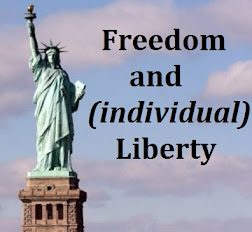 |
| Source:Basic Economics- David Brooks is now a conservative columnist for The New York Times. |
"Milton Friedman - Tyranny of the Status Quo - Part 1 - Beneficiaries w/ David Brooks"
"Analyzes the failure of the Reagan Administration's attempts to greatly reduce taxes, regulations, and government spending and suggests practical changes."
From the early 1930s with FDR and the New Deal till the mid or late 1970s, when high taxes became unpopular, perhaps starting in California with the tax revolt that started there in 1977-78, sort of like the 20th Century version of the Tea Party movement, big government, democratic socialism (as I call it) was considered popular in the United States. Not as popular as it's in Canada or Europe, but probably the most popular in American history. And high taxes were considered a necessary evil, or perhaps not even evil at all, to fund all of the Federal social insurances that became popular.
Americans expected to have all of these social insurances to benefit them and even take care of them. America was probably the closest to becoming a social democracy that's common in Europe then we'll probably ever be.
But what happened in the mid and late 1970s, was the economy tanked and Americans were unemployed as a result that didn't want to be unemployed and found themselves collecting the programs that they didn't mind paying into. And a different philosophy that had always been around gained prominence in America. That was about low taxes and more economic freedom for individuals. And people who were unemployed that were once middle class, found this message appealing.
In 1979-80 Ronald Reagan a Conservative Republican and who was actually the real thing, an actual Conservative Republican (unlike Rick Santorum) who ran for President and ran on telling Americans how bad the economy was and he had a message to turn the economy around. That was based on lower taxes, lower regulations and more economic freedom. That government's job wasn't to take care of people, but that the people should have the freedom to take care of themselves.
In 1979-80 Ronald Reagan a Conservative Republican and who was actually the real thing, an actual Conservative Republican (unlike Rick Santorum) who ran for President and ran on telling Americans how bad the economy was and he had a message to turn the economy around. That was based on lower taxes, lower regulations and more economic freedom. That government's job wasn't to take care of people, but that the people should have the freedom to take care of themselves.
President Reagan was successful in a couple of fronts. He did cut taxes and regulations and the economy did take off in the 1980s, but government didn't become a smaller factor in Americans lives in this period. But if anything a larger factor, with the increases of the deficit, debt, the expansion of the War on Drugs and so-forth.
It wasn't that the Federal Government wasn't spending less money during the Reagan Administration, but that it was taxing less, which is a big difference. It's hard to change the status quo when the status quo is popular and the status quo has lobbyists and interest groups, that are in the business to protect the status quo. This is something that every reformer left or right that has become President of the United States has ran into. And why changing things in Washington is so difficult.


No comments:
Post a Comment
All comments that are not personal, don't have spam, and aren't personal in nature, that are relevant to the post, are welcome at FreeState Now. Everything else will be marked as spam.